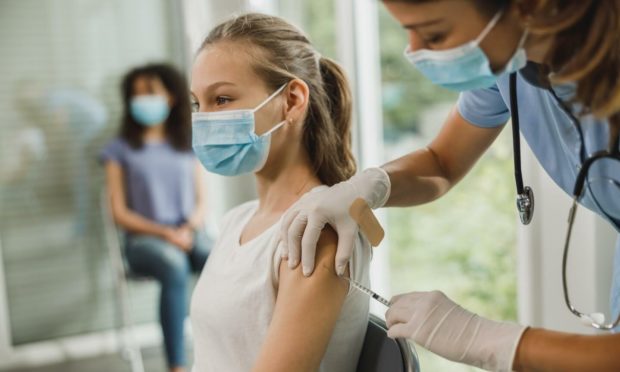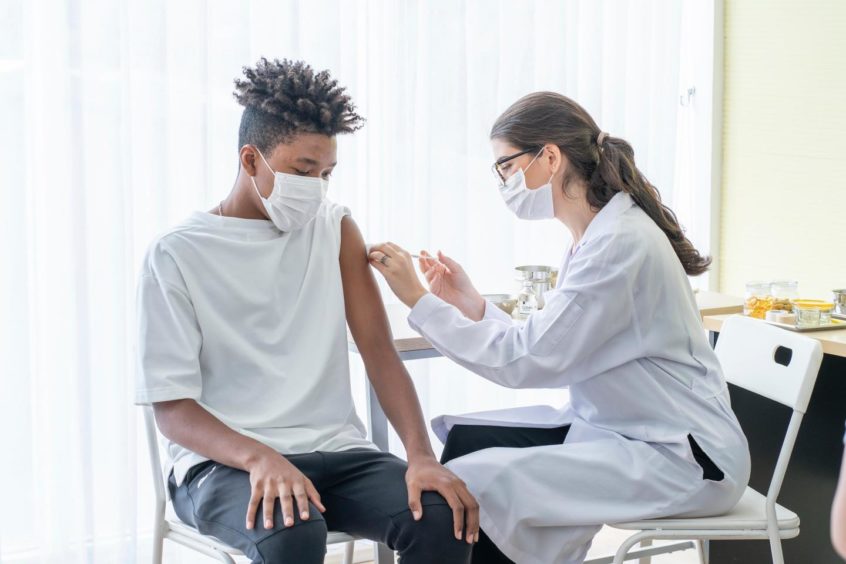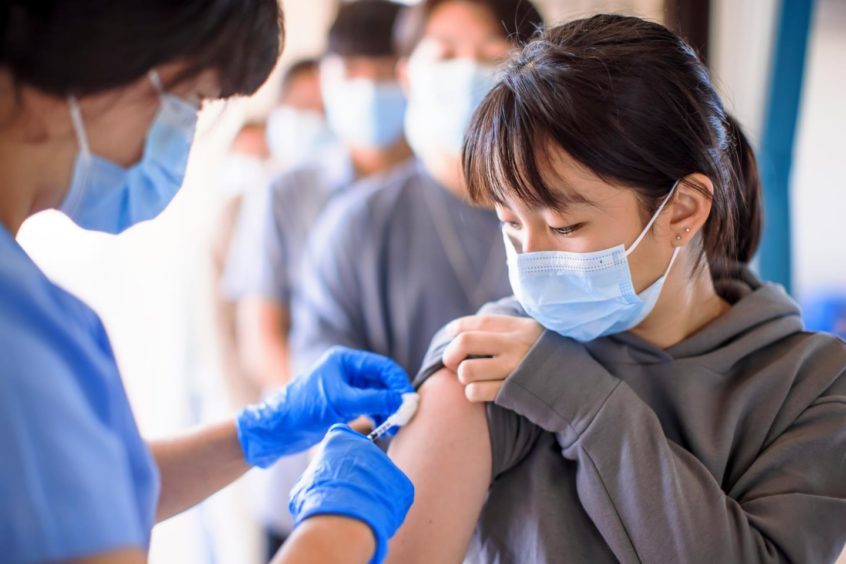All 16 to 17-year-olds, and some 12-15-year-olds, in Scotland were invited for the Covid vaccine from last month. Many have now received their first dose.
There’s lots of talk about which children will get jags – as vaccine experts and governments are at odds over what to do next.
So what is the current advice around young people and the coronavirus vaccine?
We’re answering your questions.
Which children can get the Covid vaccine?
Currently all 16-17-year-olds are able to get the coronavirus vaccine.
It is also approved for some 12-15-year-olds, including those who have:
- severe neuro-disabilities
- Down’s syndrome
- underlying conditions resulting in immunosuppression
- profound and multiple learning disabilities (PMLD)
- severe learning disabilities
- a diagnosed learning/intellectual disability (mild or moderate)
Those eligible also include young people aged 12 and above who live in the same household as adults or children who are immunosuppressed.
Do under-18s get one dose or two?
In August, the Joint Committee on Vaccination and Immunisation (JCVI) announced all 16-17-year-olds would be offered their first dose of the coronavirus vaccine.
However, it is not yet clear if or when under-18s will be eligible for a second dose.
It is likely if under-18s become eligible for a second dose it will be given at least 12 weeks after the first.
Which vaccines can under-18s get?
Currently, all under-18s will receive the Pfizer vaccine, though the Moderna vaccine has also been approved for 12-17-year-olds.
Does my child need my consent to get the vaccine?
If your child is aged 16-17, they do not need parental consent to get the vaccine.
Will the vaccine be rolled out to all 12-15-year-olds?
On September 4, the JCVI said they were not recommending the vaccination of all 12- to 15-year-olds as “the margin of benefit is considered too small to support universal vaccination…at this time.”
However, a final conclusion has not yet been made. The government is looking at ‘a broader perspective’ including infection levels and potential impact on schooling.
Chief medical officers across the UK are now considering the issue, with a decision expected in the next few days.


